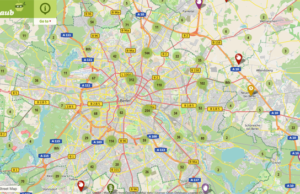“Mindfulness”. It’s a buzzword that’s making its way into mainstream media all throughout the world. And it’s not just for those tree-hugging earthy types, either. It’s designed for all of us—young, old, rich, poor, single, married, employed, unemployed—you name it!

What is mindfulness, exactly?
The practice focuses on bringing attention to the present moment. It is a state of active awareness and observation of your thoughts and feelings, as well as the surrounding environment, without judgment. By focusing on the present, thoughts of the past and worries or anxiety about the future are able to gently flow through your mind, reducing the potential for rumination.
Although the idea of being mindful is becoming increasingly popular today, its roots are in ancient Buddhist meditation. In the late 1970s, Jon Kabat-Zinn developed the Mindfulness-Based Stress Reduction (MBSR) program at the University of Massachusetts Medical School.
Since this time, thousands of studies have been conducted to examine the physical and mental health benefits of being mindful in general. And while the concept was considered a new-age, pseudo scientific concept for many years, it is increasingly being considered a tool to help us better understand how the mind works.
The benefits of mindfulness
During one type of mindful exercise, meditation, scientists have concluded that our brains stop processing. Essentially, when we continue to train, our brain patterns change. This can reduce the risk of depression and relieve symptoms of those already suffering.

In addition, it has been linked to many other mental and physical benefits such as: better focus, lower stress, reduced anxiety, increased memory, increased creativity, improved sleep, enhanced personal relationships and work productivity as well as an improved immune system.
The rise of mindfulness is mainstream culture
The increasing scientific link between mindfulness and these benefits has changed the way in which it is perceived in society. Even large firms have incorporated mindful activities into their employee’s schedules!
Being mindful in Berlin

Mindfulness practice can be done at anytime, and anywhere—washing the dishes, on your way to work, etc. There are also group mindfulness practice sessions—such as mediation, yoga, Qigong, for example—that help participants better cultivate a regular routine.
Through the German capital, there are also many mindful courses and practices, both in English and in German. Meetup.com is a quick resource for various activities. As well, there is also a Mindfulness Based Stress Reduction course as well.





















